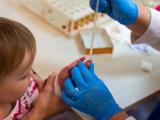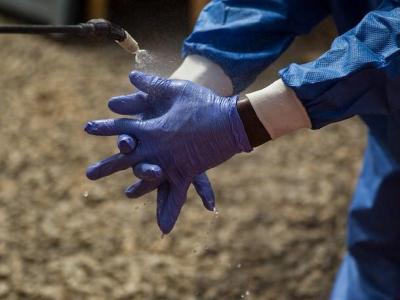Aug 8, 2011
Antibody discovery raises hopes for new flu vaccine, treatments
Harvard and Duke researchers, using a new technology to take snapshots of immune cells that humans make when vaccinated, identified a new antibody, called CH65 that protects against many different flu strains. Their finding raises hopes that the antibody could be used to make a more broadly protective, longer-lasting flu vaccine, according to a press release today from Howard Hughes Medical Institute (HHMI), which also collaborated on the study. The scientists found that the new antibody binds tightly to the receptor pocket, a part of the influenza virus that doesn't mutate. When the researchers and their partners at the US Food and Drug Administration (FDA) tested CH65 against 36 flu strains that have been isolated between 1988 to 2007, they found that it recognized and blocked 30 of them, according to the release. Stephen C. Harrison, PhD, an HHMI investigator, said that although the new finding could be used to develop
a vaccine that stimulated CH65, it could become obsolete if the strategy pushes viruses to mutate in the area around the binding pocket. Instead, scientists hope they can use the finding to better understand how the immune system selects which antibodies to produce, another possible strategy for developing a more broadly protective vaccine. Harrison added CH65 may have a more direct clinical application as a monoclonal antibody for patients with severe flu. "And this antibody is a very interesting molecule to consider for that," he said.
Aug 8 Proc Natl Acad Sci abstract
Aug 8 HHMI press release
Korean data show few serious adverse events with flu vaccine
After administering 75 million doses of influenza vaccine from 2003 through 2010, South Korea identified only 42 potentially serious adverse events, or roughly 1 per 1.8 million doses, according to a new study. Of those events, 26 (62%) were causally associated with flu vaccine, which lowers the rate to 1 event per 2.9 million doses. The events included 9 cases of Guillain-Barre syndrome, 18 other neurologic events, 8 injection-site events, and 7 other events. Annual incidence of potentially serious events ranged from 0.006 to 0.07 cases per 100,000 doses.
Aug 7 Vaccine study

















